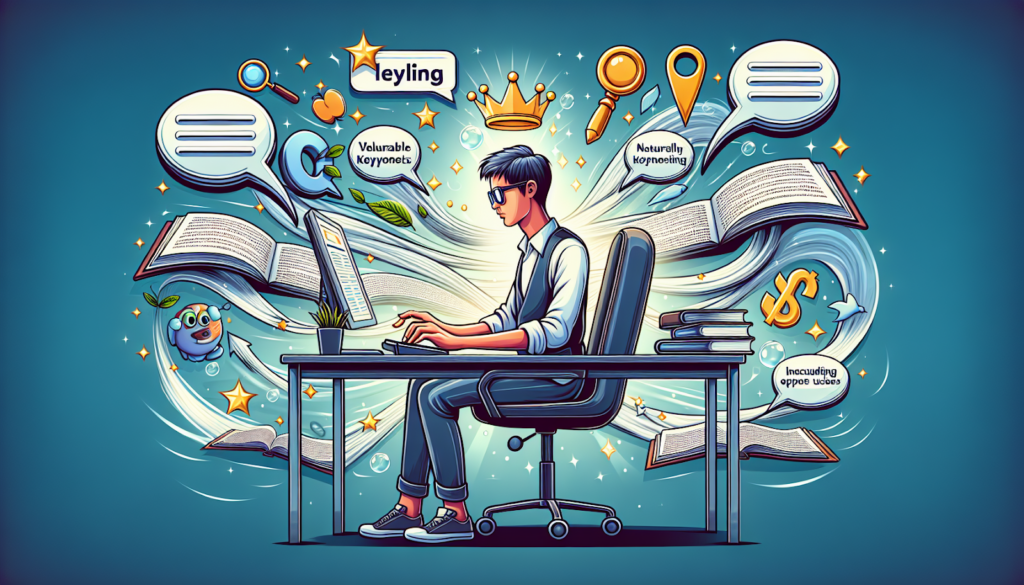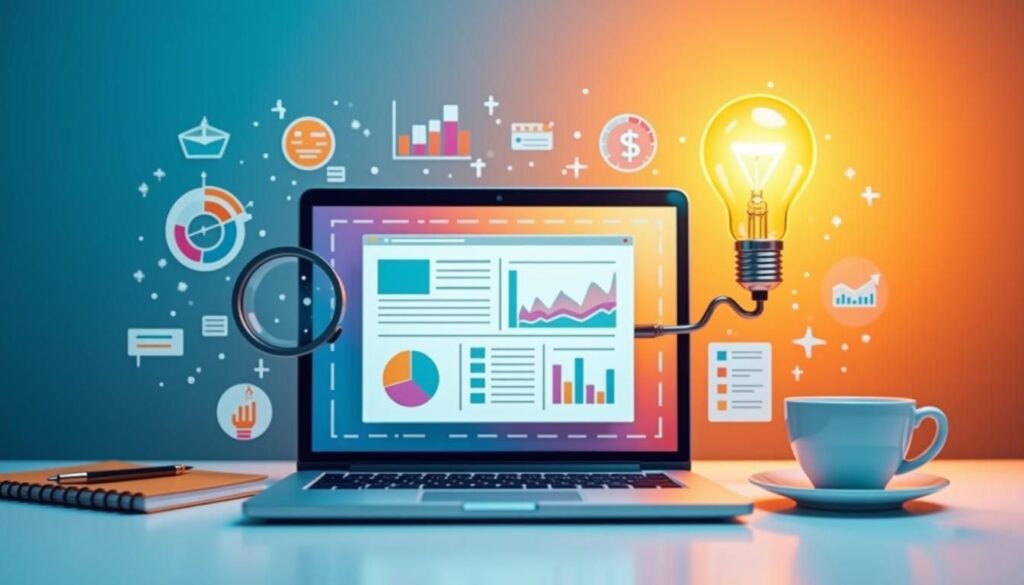
Key Takeaways
- Inbound marketing is no longer a nice-to-have; around 80% of marketers now say inbound is their primary strategy, and it generates roughly 54% more leads than traditional outbound while costing about 62% less per lead.
- For B2B sales teams, the real power of inbound is in how it feeds your SDRs with warmer, higher-intent leads so they spend more time qualifying and booking meetings and less time smiling and dialing into the void.
- Roughly 77% of B2B buyers will not talk to a salesperson until they have done their own research, often consuming 10-plus pieces of content, which means your SEO, content, and website experience become your first sales conversation.
- The best B2B inbound marketers in the US all follow a similar playbook: sharp ICP definition, SEO-driven content engines, strong conversion paths, tight sales alignment, and ruthless measurement of pipeline, not pageviews.
- Blending inbound and outbound beats choosing sides; inbound leads typically cost between 75 and 150 dollars versus 200 to 500 dollars for outbound, and companies that run a hybrid strategy see faster revenue growth and lower acquisition costs over time.
- Video, webinars, case studies, and long-form blogs are no longer optional assets; they are often the exact formats buyers expect and the ones that move them from marketing qualified to sales ready.
- If you do not have the internal bandwidth to build and follow up on inbound leads, partnering with an outsourced SDR team like SalesHive to handle qualification, personalization, and appointment setting is one of the fastest ways to turn inbound interest into booked meetings.
Inbound marketing is your first SDR touchpoint
Inbound marketing is why the right buyers feel like they already know you before an SDR ever picks up the phone.
In B2B, the buying journey has shifted upstream: prospects now self-educate, compare options, and form opinions long before they request a demo. That’s exactly why inbound has become the default growth engine for many teams, with roughly 80% of marketers saying it’s their primary strategy. When inbound is working, it doesn’t just create traffic—it creates informed conversations and faster paths to qualified meetings.
At SalesHive, we see the best results when inbound is treated as part of the sales development motion, not a separate marketing project. Your content and website should set the table, and an SDR team—whether in-house or through a sales development agency—should convert that attention into pipeline with fast, contextual follow-up.
Why inbound matters more now (and why sales should care)
Today, about 77% of B2B buyers won’t talk to a salesperson until they’ve done their own research. That means your SEO, content, and website experience are functioning as the first stage of your sales process, whether you designed them that way or not. If your pages don’t answer real questions and guide buyers forward, you’re effectively losing deals before an SDR ever gets a chance.
The financial case is just as strong. Inbound is cited as generating about 54% more leads at roughly 62% lower cost per lead, and some data suggests it can generate roughly 3x more leads per dollar than outbound tactics. For revenue leaders, that’s a direct lever on pipeline efficiency, CAC, and how hard your team needs to push to hit the number.
To keep the discussion grounded, here’s the cost reality most teams feel when they compare inbound demand capture to pure outbound prospecting. The point isn’t “choose a side”—it’s to understand the economics so you can staff appropriately, set realistic timelines, and decide when a b2b sales agency or sales outsourcing partner makes sense.
| Channel motion | Typical cost per lead (CPL) |
|---|---|
| Inbound (SEO/content-driven) | $75–$150 |
| Outbound (cold email + cold calling services) | $200–$500 |
Build the strategy like top inbound teams do: ICP first, SEO second
Top inbound marketers in the U.S. don’t start with a keyword dump—they start with an ICP that sales agrees will convert. That means getting specific about firmographics, buying committee roles, deal sizes, and the triggers that create urgency. Without that, you can publish endlessly and still end up with leads that look good in marketing reports but don’t turn into opportunities.
We recommend treating SEO as your “silent top SDR.” Every high-intent page should read like a great discovery call: it should reflect the buyer’s pain, clarify what success looks like, and anticipate objections the same way your best reps do live. When you map content directly to sales conversations—real questions, real use cases, real pushback—you stop building a content library and start building a pipeline asset.
The execution model that holds up most consistently is a pillar-and-cluster approach. Pick one core problem your ICP actively searches, build a comprehensive pillar page, then publish supporting cluster articles that answer narrower questions and link back to the pillar. This creates topical authority, improves internal navigation, and gives your SDR team a tight set of “send-after” resources that support outbound follow-up from a cold email agency motion to a call-first outreach sequence.
Turn inbound traffic into meetings with clear conversion paths
Inbound doesn’t win because of traffic; it wins because traffic turns into intent signals that your team can act on. The best inbound sites guide buyers to a logical next step based on where they are in the journey: early-stage visitors need education, mid-stage visitors want proof and benchmarks, and late-stage visitors need pricing clarity, implementation detail, and a fast way to speak with a human.
A practical approach is to design one primary conversion funnel per ICP: a high-value offer (benchmark report, calculator, assessment) that’s tightly aligned to what sales qualifies on. Once someone converts, use automation to nurture and route—but keep the handoff tight so SDRs can respond while interest is high. This is where a dedicated SDR agency or outsourced sales team often outperforms ad-hoc coverage, because speed and consistency matter more than most teams expect.
The biggest implementation mistake we see is ignoring the on-site experience after you’ve “won” the click. If your pages load slowly, CTAs are generic, and forms feel like a tax, you’ll pay for attention and still starve the funnel. Treat your highest-traffic pages like revenue pages, and make conversion a product: clear positioning, obvious next steps, and a frictionless path into a conversation.
Inbound doesn’t replace outbound; it makes every outbound touch smarter, faster, and more relevant.
Connect inbound to SDR execution (where pipeline is actually created)
Inbound leads should not be worked like cold prospects. Someone who read your comparison article or visited a pricing page is already raising their hand, and the first outreach should reflect that context. When SDRs reference the exact content a buyer consumed and ask discovery questions that continue the same conversation, meeting rates and deal velocity typically improve—because the prospect feels understood, not pitched.
Behavioral prioritization is the difference between “we get leads” and “we get opportunities.” Use basic lead scoring that combines fit (industry, size, territory) with intent (repeat visits, pricing views, webinar attendance) so your team calls the right people first. Then set an SLA the SDR team can actually follow, because slow follow-up turns inbound into a missed call log.
This is also where hybrid teams win: inbound captures demand, and outbound accelerates it by targeting the exact accounts showing engagement. SalesHive operates as a b2b sales agency and sales development agency that can work hand-in-raise leads and run proactive sequences into lookalike accounts, using cold calling services, LinkedIn outreach services, and email. Done correctly, inbound becomes the signal layer that makes outbound dramatically more efficient.
Common inbound mistakes that quietly kill revenue (and how to fix them)
The most common failure is publishing content without a clear buyer journey. Random topics might generate clicks, but they rarely generate qualified pipeline because they don’t move a specific decision maker from problem-aware to solution-ready. Fix this by auditing content coverage against your ICP’s real questions at each stage, then building only what supports the next sales conversation.
The next failure is letting marketing run inbound in a silo from sales. When marketing optimizes for volume and sales optimizes for meetings, trust erodes fast—SDRs stop working leads, and the funnel becomes a blame loop. The fix is operational: shared stage definitions, a clear MQL-to-SAL handoff, and regular funnel reviews where SDRs give structured feedback on lead quality.
Finally, many teams expect inbound to deliver overnight results. In reality, inbound compounding takes time, and the ramp is why outbound sales agency support or an internal cold calling team can be the bridge while SEO matures. Plan for a 6–12 month runway for meaningful organic impact, and measure pipeline contribution—not just traffic—so you don’t cut the program right before it starts paying back.
Optimize for what buyers consume: proof, video, and measurable intent
Once the basics are in place, the fastest inbound gains usually come from doubling down on content formats buyers actually use to make decisions. Roughly 70% of B2B buyers watch video during the buying journey, and 63% report being more likely to purchase after watching a video. Video demos, webinar clips, and short “how it works” explainers also give SDRs high-leverage assets to send in follow-ups.
SEO performance matters most when it produces sales-ready leads, not vanity rankings. Some reporting shows SEO-generated inbound leads can convert at around 14.6%, which is why organic search is often one of the highest-yield channels once it’s established. To capitalize, build pages around high-intent questions, include strong proof (case studies, outcomes, benchmarks), and make the next step obvious.
From an execution standpoint, automate the boring parts and personalize the critical parts. Let automation handle routing and basic nurturing, but have SDRs tailor outreach to the buyer’s behavior—what they read, what they watched, what they compared. Whether you run this with an internal team or choose to hire SDRs through sales outsourcing, the win is the same: timely, relevant conversations driven by real intent signals.
A practical next-step playbook for B2B teams
Start with a simple audit: define your top two or three ICPs, then map the buying journey stages and the questions buyers ask at each stage. Compare that map to your current content and identify gaps that directly block conversions, such as missing comparison pages, weak case studies, or no clear “talk to sales” path for high-intent visitors. This turns “we need more content” into a prioritized roadmap tied to revenue.
Then build one focused inbound engine: a pillar topic that matches a high-value problem, supported by a small cluster of supporting articles and a single conversion offer that your SDRs can qualify against. If you do this well, you’re not just increasing leads—you’re creating a repeatable way to generate pipeline at a predictable cost, where inbound CPL often lands around $75–$150 instead of $200–$500 for many outbound-only motions.
Finally, decide who owns follow-up and how fast it happens. If inbound volume is growing but meetings aren’t, the gap is usually speed, personalization, or capacity—exactly where an outsourced sales team, a cold calling agency, or an SDR agency can plug in without you rebuilding your org chart. The goal is a unified revenue engine: inbound creates demand, and sales development converts it into qualified opportunities consistently.
Sources
- ZipDo (Inbound Marketing Statistics)
- GrowLeads (Inbound vs Outbound, 2025 Data)
- Saleslion (B2B Buyer Research Statistic)
- Sci-Tech-Today (B2B Lead Generation Statistics)
- indi.cards (B2B Marketing Stats and Insights for 2025)
- ZipDo (B2B Video Marketing Statistics)
- Keevee (Inbound Marketing Statistics)
📊 Key Statistics
Expert Insights
Treat SEO as your silent top SDR
If most buyers are doing their own research before they ever talk to sales, your SEO and content are effectively your first SDR team. Invest in ranking for high-intent, problem-focused queries your ideal customers are actually searching and treat each ranking page like a discovery call script in written form, leading visitors toward logical next steps such as demos and consultations.
Map content directly to sales conversations
Your best inbound assets usually mirror your best sales calls. Sit down with your top reps and map out the objections, questions, and use cases they handle every week, then turn those into blogs, case studies, calculators, and webinars. This ensures what marketing publishes actually helps SDRs move deals forward instead of sitting in a content graveyard.
Use behavioral data to prioritize SDR follow up
Not all inbound leads are created equal, and your SDRs should not treat a generic ebook download the same as a pricing page viewer. Build lead scoring that considers firmographics plus behavior, such as number of high-intent page views or webinar attendance, so reps focus outbound energy on inbound leads with the highest purchase intent.
Blend inbound and outbound instead of choosing sides
Inbound is a compounding engine; outbound is an accelerant. High performing teams use inbound to generate brand-aware, problem-aware prospects, then layer targeted outbound sequences to the exact accounts engaging with their content. This hybrid motion consistently beats a pure inbound or pure outbound strategy in both cost per opportunity and speed to revenue.
Automate the boring parts, personalize the critical parts
Marketing automation should handle routine nurturing, scoring, and routing so SDRs can focus on high-value, human conversations. Use tools and AI to personalize at scale where it matters most, such as tailoring email openers to the content a lead just consumed or referencing a specific webinar session on your first live call.
Common Mistakes to Avoid
Publishing lots of content without a clear ICP or buyer journey
Random blogs and ebooks might drive clicks, but they rarely turn into qualified pipeline if they are not built for a specific decision maker and mapped to how they actually buy.
Instead: Start by defining your ideal customer profile and building buyer journey stages, then plan content specifically to help those people move from problem aware to solution committed and finally to selecting your product.
Treating inbound leads exactly like cold outbound leads
If SDRs call every inbound hand raiser with a generic demo pitch, they will burn interest quickly and see response rates drop, because inbound buyers expect a more contextual, consultative conversation.
Instead: Train reps to reference the exact content or offer that triggered the lead, ask discovery around that topic, and position next steps as a continuation of the value they have already received rather than a hard pitch.
Ignoring conversion paths and on-site experience
Driving traffic without clear calls to action, fast page load times, and frictionless forms means you are paying for attention that never turns into leads, starving your sales team.
Instead: Treat key pages like landing pages: add compelling offers, social proof, live chat or chatbots, and short forms, then A/B test headlines, layouts, and CTAs to steadily increase visitor-to-lead conversion rates.
Letting marketing run inbound in a silo from sales
When marketing optimizes for traffic and leads and sales optimizes for meetings and revenue, you end up with MQLs that never get worked and SDR teams that do not trust inbound at all.
Instead: Create shared definitions of lead stages, agree on SLAs for follow up, run joint funnel reviews, and have SDRs give structured feedback on lead quality so inbound programs can be tuned for actual opportunities.
Expecting inbound to deliver overnight results
SEO and content take time to rank and compound, so leaders who treat inbound like a short term campaign often cut budgets just before the engine would start producing cost efficient pipeline.
Instead: Set realistic expectations of a 6 to 12 month ramp for significant organic impact, track leading indicators such as rankings and engagement as well as pipeline, and use targeted outbound to cover near term gaps.
Action Items
Audit your buyer journey and content coverage
List your top 2 to 3 ICPs, then map every stage of their journey and the core questions they ask. Compare that to your existing content and flag gaps where you need blogs, case studies, or tools to support real sales conversations.
Build one SEO-focused pillar topic and cluster
Pick a high value problem you solve, create a long form pillar page optimized for that topic, then support it with 6 to 10 cluster posts targeting related long tail queries and link everything together to start building topical authority.
Design a simple but strong inbound conversion funnel
Choose one gated offer such as a benchmark report or calculator, put it behind a short form, and drive traffic from relevant blogs and ads. Set up a nurturing sequence and a routing rule so SDRs call the highest intent leads quickly.
Implement lead scoring tied to SDR SLAs
Assign points for firmographics and behaviors like pricing page views or webinar attendance, set a threshold for when a lead becomes sales qualified, and agree that SDRs will follow up those leads within a set number of hours.
Use marketing automation and AI to personalize outbound to inbound activity
Connect your CRM, marketing automation, and sales engagement tools so reps can see which content an account has engaged with, then use templates and AI assistants to tailor outreach around that interest instead of starting cold.
Decide which parts to outsource to specialists
If you lack bandwidth or expertise internally, consider using an inbound agency for SEO and content and an outbound partner like SalesHive for SDR execution so you can move faster while still maintaining strategic control.
Partner with SalesHive
For companies investing in inbound marketing, SalesHive acts as your sales development horsepower. Your content, SEO, and campaigns generate hand raisers; our SDR teams handle fast, personalized follow up across phone, email, and LinkedIn, making sure no high intent lead slips through the cracks. With both US based and Philippines based SDR options, AI powered personalization tools like eMod for tailored email outreach, and no annual contracts, you can scale capacity up or down as inbound volume fluctuates.
Because SalesHive lives and breathes outbound process, we are comfortable running full cycle follow up on inbound leads, as well as proactive prospecting into lookalike accounts your inbound data reveals. The result is a unified revenue engine where inbound marketing creates demand and SalesHive’s SDRs convert that demand into qualified opportunities and booked meetings for your team.
❓ Frequently Asked Questions
What is inbound marketing in a B2B sales context?
In B2B, inbound marketing is a strategy that attracts target accounts by publishing helpful content, ranking in search, and offering valuable resources that answer real buyer questions. Instead of pushing messages at cold audiences, you create assets that pull in buyers when they are actively researching. For sales teams, inbound should be a steady source of higher-intent leads that SDRs can qualify and convert into sales meetings.
How long does it take for inbound marketing to impact pipeline?
If you are starting from scratch, plan on 3 to 6 months before you see consistent traffic and early leads, and 6 to 12 months before inbound becomes a reliable source of pipeline. SEO and content need time to rank and compound. That is why many teams run outbound in parallel, using SDRs to create opportunities while inbound spins up, then gradually shifting more of the load to inbound as it starts producing lower cost, higher intent opportunities.
Which inbound channels work best for B2B lead generation?
For most B2B teams, the core inbound channels are SEO optimized blogs, long form content like whitepapers and guides, webinars, email nurturing, and increasingly, video. Organic search captures problem aware buyers, webinars and reports drive qualified form fills, and email sequences warm up leads over time. Social channels like LinkedIn act as amplifiers and retargeting layers, helping keep your brand in front of key accounts between touches.
How should SDRs handle inbound leads differently from pure outbound prospects?
Inbound leads already know something about you, so the first call should reference the content or offer that triggered the lead and dig deeper into that problem. Instead of diving straight into a generic discovery script, start with what they downloaded or watched, then ask about their current process, impact, and timeline. This builds trust and relevance quickly and usually leads to higher conversion from form fill to meeting.
What metrics should we track to measure inbound effectiveness for sales?
Beyond traffic and raw leads, focus on marketing qualified leads, sales accepted leads, meetings booked, pipeline generated, and closed revenue attributed to inbound sources. Track conversion rates from visitor to lead, lead to MQL, MQL to SAL, and SAL to opportunity. Also monitor cost per lead and cost per opportunity by channel so you can see where to double down and where to adjust or cut spend.
Do we still need outbound if our inbound engine is strong?
Yes, in most B2B environments a hybrid model wins. Inbound is fantastic for capturing existing demand and educating the market, but outbound lets you go after specific strategic accounts, new markets, or segments that are not actively searching yet. Many teams use inbound to identify engaged accounts, then have SDRs run targeted outbound sequences to buying committees at those companies, effectively turning inbound signals into outbound triggers.
Should we outsource inbound marketing or build it in house?
It depends on your stage and resourcing. Early on, working with a specialized inbound agency can get you solid SEO, content, and strategy much faster than trying to hire a full in house team. As you scale, you can transition critical functions internal and keep agencies for specialist work. Similarly, if your sales org is not set up to respond quickly and professionally to inbound leads, outsourcing SDR work to a firm like SalesHive can be the difference between a busy form fill report and a full calendar of sales meetings.
How does inbound marketing affect SDR quotas and compensation?
Good inbound programs usually increase SDR productivity because reps work warmer, better qualified leads. That typically means higher meetings per rep and more pipeline per activity. Many teams split quotas into inbound and outbound components or track separate conversion benchmarks so inbound performance is visible. As inbound ramps, you may raise targets but should also revisit comp models to reward both smart outbound and effective handling of high quality inbound demand.






